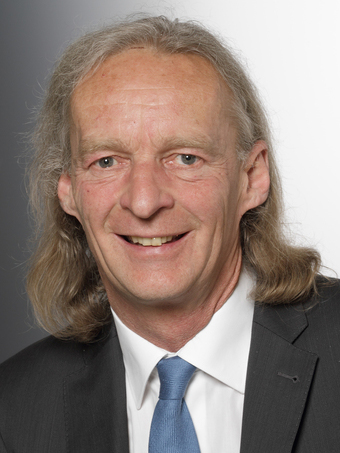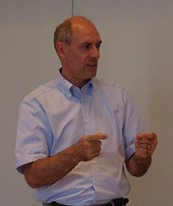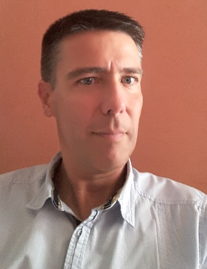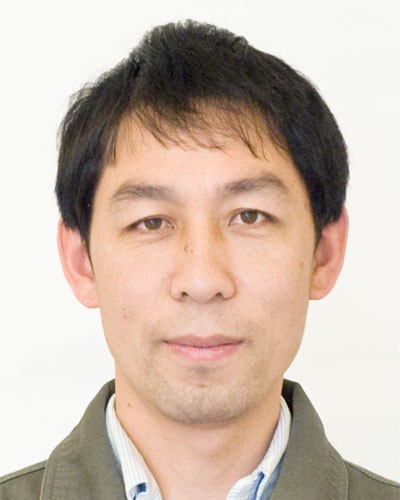Lecturers
The following distinguished lecturers will be delivering the talks for JESS 2025:
Update pending for 2025
Prof. Dr. rer. Nat, Dr. tec. at
DTU Energy, Denmark
Anke Hagen is a chemist from University of Leipzig. International research experiences from Germany, Japan, USA, and Denmark.
Responsibilities within the Department of Energy Conversion and Storage involve project management, fund raising, teaching, continued education, supervision, and dissemination. Professional activities comprise for example: Danish representative in the International Energy Agency IEA, Annex 24, European Fuel Cells and Hydrogen Joint Undertaking, coordination of SOFC activities at the Department. Fund raising and project management experiences include national German and Danish projects as well as EU projects. Scientific expertise in areas like solid oxide cells, electrochemistry, heterogeneous catalysis, and analytical chemistry.
Contact
Anke Hagen Professor Department of Energy Conversion and Storage Phone: +45 46775884 Mobile: +4541121884 anke@dtu.dk
Ass. Prof. Arghya Bhowmik
Department of Energy Conversion and Storage
(DTU Energy)
Technical University of Denmark
Dr. Arghya Bhowmik is an Associate Professor in computational materials science with over a decade of experience in energy materials research, advancing scientific discovery by integrating machine learning with traditional physics-based modeling. His work focuses on building predictive, interpretable, and uncertainty-aware models trained on multi-source, multi-fidelity datasets, enabling accurate simulations across atomic to system scales. He has pioneered generative models and reinforcement learning agents for inverse design, facilitating the rapid exploration of vast chemical spaces and the prediction of low-energy atomic configurations for next-generation battery materials and catalysts. He had key contributions in application of graph neural networks, symbolic regression, and advanced uncertainty quantification in battery research. He leads key European initiatives, including the Battery Interface Genome (BIG) area in the BIG-MAP project and the "Electron to Device" digital twin effort in the CAPeX Pioneer Center, shaping the future of autonomous materials discovery. Dr. Bhowmik also recently co-led a pan-European, internet-distributed workflow combining synthesis robotics, real-time characterization, DFT, and ML models to enable autonomous battery materials discovery. A strong advocate of open science, he regularly publishes high-quality datasets and open-source software, driving community-wide adoption of data-centric, reproducible research to meet urgent challenges in clean energy and sustainability.
Contact
Arghya Bhowmik Associate Professor Department of Energy Conversion and Storage
Division head
IEK-9
Forschungzentrum Jülich GmbH
Hans Kungl studied mechanical engineering with focus on turbomachinery at the University of Karlsruhe, Gemany, where he received his diploma in 1999. After two years working on a project on thermal barrier coatings at the IKM in Karlsruhe, he joined the ferroelectrics group at this facility. He received his Ph.D. degree from the University of Karlsruhe for a thesis on strain mechanisms in morphotropic PZT, su-pervised by Prof. Dr. Michael Hoffmann and Prof. Dr. Juergen Roedel in 2005. In subsequent work as a PostDoc, he focused on processing, defect stoichiometry, and electro-mechanical behaviour of PZT and lead-free ferroelectrics. Since 2013, he has been head of the department of Functional Materials and Components of the Institute of Energy and Climate Research (IEK-9) directed by Prof. Dr. Ruediger-A. Eichel at Forschungszentrum Julich. His current research topics are processing and electrochemical analysis of lithium-ion batteries, solid state electrolytes and metal-air batteries, and electrochemistry of CO2 reduction.
Contact

Hans Kungl Dr. Forschungzentrum Jülich, IEK-9
Prof. Jens Oluf Jensen
Electrochemical Materials
Department of Energy Conversion and Storage
(DTU Energy)
Technical University of Denmark
Jens Oluf Jensen has materials science, electrocatalysis and electrochemistry as main research fields. The approach is experimental, addressing technologies within energy conversion with a focus on hydrogen energy, high temperature PEM fuel cells and alkaline water electrolysis. He was awarded his PhD degree for a study on metal hydrides. The research on fuel cells and electrolyzers includes ion conducting membranes (acidic and alkaline), catalysts (noble metal based and noble metal free), electrode structures and cell testing with an emphasis on durability. He is the founder of the conference series International Conference on Electrolysis (ICE) running since 2017. At DTU Energy, he teaches hydrogen energy and fuel cells as well as thermodynamics. He is editorial board member of several scientific journals including Electrocatalysis.
Contact
Jens Oluf Jensen Professor Department of Energy Conversion and Storage Phone: +45 45252314 jojen@dtu.dk
MEET, University of Münster
Münster, Germany
Karin Kleiner is an electrochemist with more than seven years of experience in the field of materials characterisation (batteries and fuel cells). In 2011 she started her PhD as an employee of the BMW group Munich investigating degradation mechanisms in commercial Li-Ion batteries from automotive field tests. She received her PhD from the Karlsruhe Institute of Technology (KIT) in 2014 and received a GDCh career grant of the Electrochemistry Section for this work. In 2015 she joined the Department of Technical Electrochemistry at the Technical University of Munich where she studied high energy cathode materials for future applications in lithium-ion batteries followed by 2 years at the Diamond Light Source (UK’s synchrotron facility) where she developed operando techniques to investigate energy storage devices. Now she is head of a young investigator group at the battery research center MEET at the University of Münster, where she is looking into the physical origin of energy density limitations of state of the art and future battery materials. She has been a Lecturer at the Joint European Summer School on Fuel Cell, Electrolyser, and Battery Technologies since 2014.
Contact

Karin Kleiner Dr. MEET, University of Münster, Germany
Dr. Maxim Ananyev
University of Birmingham, UK
CV pending
Contact
Prof Dr Robert Steinberger-Wilckens
Chair Hydrogen and Fuel Cell Research
University of Birmingham, UK
Robert is a Physicist by training with a specialisation in renewable energies. He has been active in the areas of renewable energies, energy efficiency, hydrogen, fuel cells, and electric vehicles over the past 40 years, both in business and academic contexts. He co-founded engineering consultancy PLANET in 1985, and was the Programme Manager for SOFC at Research Centre Jülich, the largest German research campus, from 2002 to 2012, before joining University of Birmingham in 2012. He is director of the Centre for Fuel Cell and Hydrogen Research at the University of Birmingham, leading a group of 45 lecturers, PostDocs and PhD students, one of the largest academic units working in this field worldwide. He co-founded the Summer School series in 2004 and has led and contributed ever since.
Contact

Robert Steinberger-Wilckens Prof Dr University of Birmingham, UK r.steinbergerwilckens@bham.ac.uk
Senior Battery Scientist
CEA-LITEN
Grenoble - France
Process Engineer with more than 20 years of experience in the battery field. Started working with SAFT during 4 years, first on NiMH batteries during his PhD in electrochemistry and then on the improvement of Li-Ion battery safety. Joined CEA in 1999 to develop and set-up a Li-Ion cell assembly line.
From 2006 to 2010, in charge of the Li-Ion battery laboratory, covering active material synthesis up to Li-Ion cell prototyping in dry rooms. Some developments concerned both positive materials such as phosphate compounds or 5V spinels and negative materials such as LTO or Silicon-based anodes. Another part of the activity was dedicated to the development of custom batteries, e.g. medical applications, and also to the developments of bipolar Li-Ion for high power applications.
Since 2010, works as a battery scientific expert in CEA-LITEN and leads research on various topics: polyanionic cathode materials (phosphates and silicates), post Li-Ion technologies (both sodium-ion and magnesium-ion), battery modelling etc. Inventor and co-inventor of more than 25 patents in the battery field.
Contact

Sébastien Martinet Dr. CEA, France
Associate Professor in Electrochemical Engineering
School of Chemical Engineering
University of Birmingham,
Birmingham, UK
Shangfeng Du graduated from Tsinghua University in Materials Science and Engineering, and obtained his PhD in Chemical Engineering from Chinese Academy of Sciences. After working as a research associate at Max Planck Institute for Metals Research, Germany, he joined the University of Birmingham as a Marie Curie Research Fellow. His research interests lie in electrochemical engineering research for energy application, with focuses on the development and evaluation of electrodes, composite membranes, single cells and short stacks, as well as their application and degradation research. He teaches electrochemical engineering, fuel cells and chemical engineering design project courses in Birmingham. He is an Associate Editor of Frontiers in Energy, and editorial board member of the journals Scientific Reports and Automotive Innovation.
Contact

Shangfeng Du Dr. University of Birmingham, UK s.du@bham.ac.uk
Dr Vaibhav Vibhu
Group leader
Institute of Energy Technology (IET-1),
Forschungszentrum Jülich GmbH
Wilhelm-Johnen Straße
52425 Jülich, Germany
v.vibhu@fz-juelich.de
Vaibhav Vibhu studied chemistry and obtained his master's degree from the University of Grenoble Alpes, France. He then completed his Ph.D. in 2016 at the ICMCB-CNRS, University of Bordeaux, France, on the development of electrode materials for solid oxide cells. Afterward, he moved to IET-1 at Forschungszentrum Jülich, Germany, to continue his work in the field of solid oxide cells (SOFCs/SOECs). His research focuses on the development of Solid Oxide Cell (SOC) materials, materials characterizations and processing, the manufacturing of cells, electrochemical characterizations using impedance spectroscopy and the identification of reaction mechanisms of electrodes and degradation phenomena of cells. In recent years, he has supervised several doctoral students and postdocs working in these areas.
Contact

Vaibhav Vibhu Dr., Team leader Forschungszentrum Jülich